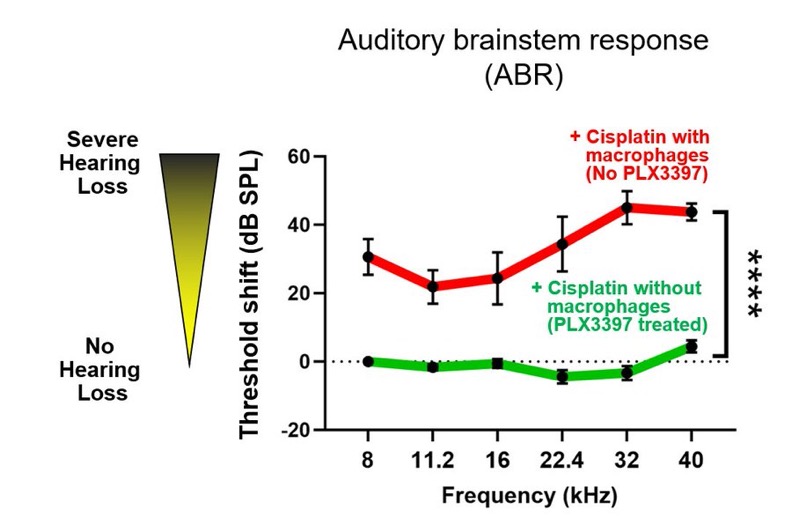
Cathy Sung: Our paper on Macrophage depletion against cisplatin-induced ototoxicity and nephrotoxicity
Cathy Sung, Postdoctoral Research Fellow at NIH, shared on X:
“I am excited to share that our paper ‘Macrophage depletion protects against cisplatin-induced ototoxicity and nephrotoxicity’ is now online in Science Advances.”
Macrophage depletion protects against cisplatin-induced ototoxicity and nephrotoxicity
Autors: Cathy Yea Won Sung, Naoki Hayase, Peter T. Yuen, John Lee, Katharine Fernandez, Huzhen Hu, Hui Cheng, Robert A. Star, Mark E. Warchol, Lisa L. Cunningham

We study cisplatin, which is a widely used and effective anticancer drug, but it has significant side effects, including ototoxicity (hearing loss) and nephrotoxicity (kidney injury), in pediatric and adult cancer patients.
In this paper, we investigated the role of macrophages in cisplatin-induced hearing loss and kidney injury in mice.
Following systemic administration of cisplatin, macrophage ablation using PLX3397 (CSF1R inhibitor) resulted in a significant protection against cisplatin-induced hearing loss and kidney injury, in part by limiting cisplatin accumulation in the cochlea and the kidney.
In other words, our study suggests that less cisplatin enters and accumulates in the cochlea (hearing organ) and kidney when macrophages are ablated.
As a result, this reduced cisplatin exposure to cells within these organs are protected against cisplatin-induced toxicities.
Below is a snippet of our findings showing that mice exposed to cisplatin in the presence of macrophages developed significant hearing loss, while mice exposed to cisplatin in the absence of macrophages maintained normal hearing (and did not develop hearing loss).

The hearing range of mice is typically between 1kHz and 90kHz frequencies. Therefore, we measured their hearing at frequencies between 8 and 40 kHz.
For reference, the human hearing range is between 0.02 kHz and 20kHz. Mice hear much higher frequency sounds than humans.
BIG thanks to all the authors, especially my mentors Lisa Cunningham and Mark Warchol, and our fantastic collaborator, the Start lab at NIH/NIDDK, who performed the studies in the kidney.”
Source: Cathy Sung/X
